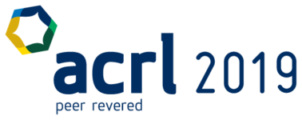Session Description:
Helping students critically engage with evidence as both consumers and creators of information is a hallmark of ACRLs Framework for Information Literacy. However, some criticize the Framework for not clearly connecting the development of information literacy (IL) competencies to civic-mindedness or social justice, i.e., moving from awareness to action. Responding to this critique, this empirical collaboration between a Librarian and a Communication professor examines the relationships between IL competencies and civic engagement attitudes among approximately 400 public speaking students (22 course sections). Join us to discuss the potential for critical IL instruction to further civic attitudes!
